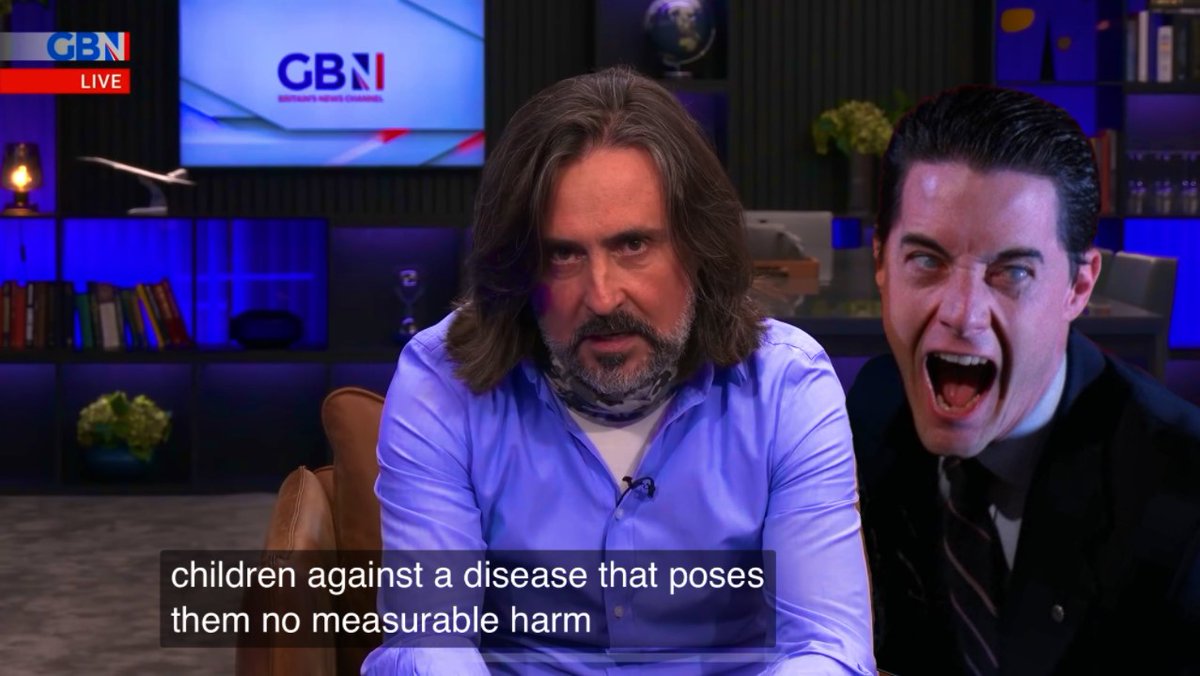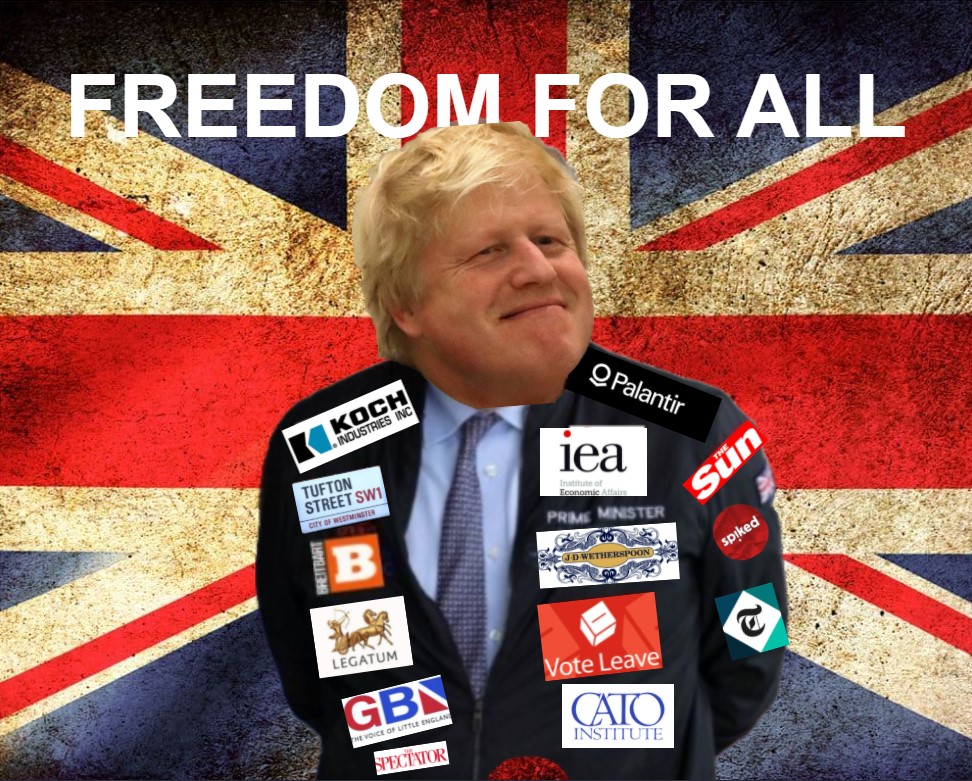
In 'The “Establishment”, the “Elites”, & the “People”:
Who’s who?', linguist Ruth Wodak explores how right-wing populist parties create a division between the 'real' & 'true' people, & the 'elites' or 'the establishment' excluded from the 'true' demos.
eprints.lancs.ac.uk/id/eprint/8692…
Who’s who?', linguist Ruth Wodak explores how right-wing populist parties create a division between the 'real' & 'true' people, & the 'elites' or 'the establishment' excluded from the 'true' demos.
eprints.lancs.ac.uk/id/eprint/8692…
There has been an erosion of trust in politics in general - a far more serious threat than the loss of trust towards a specific political party or individual.
It implies a search for alternatives – which is where right‐wing populist & extreme right political parties come in.
It implies a search for alternatives – which is where right‐wing populist & extreme right political parties come in.
We get new & self‐defined saviours of ‘the people’ dominating politics, presenting themselves as authentic & trustworthy, their political rhetoric reliant on the construction of a distinct dichotomy which aims to divide people living in a country into two quasi homogenous blocs:
‘The people’ are juxtaposed with ‘the establishment’ within a narrative of threat & betrayal.
The so‐called ‘establishment’ are accused of having intentionally or subconsciously neglected the so‐called ‘people’, having instead pursued only their own interests.
The so‐called ‘establishment’ are accused of having intentionally or subconsciously neglected the so‐called ‘people’, having instead pursued only their own interests.
Though it takes slightly different forms in different countries, the common theme of this divisive rhetoric (played out in the 'culture war') is to accuse the 'establishment' of failing to protect the people, not voicing their interests, & of ignoring the anxieties of the people.
In an absurdly simplistic dichotomy, the two groups are portrayed as vehemently opposed to each other: one defined as powerful, the other as powerless; one described as good, innocent, & hard‐working, the other as bad, corrupt, criminal, lazy & unjustly privileged etc.
Accordingly, the mechanism of blaming & ‘scapegoating’ (singling out a group for negative treatment on the basis of collective responsibility) constitutes an important & consistent feature of right‐wing populist parties’ discourse.
Sometimes, the scapegoats are Jews, sometimes migrants, sometimes Muslims, sometimes Roma or other minorities, sometimes capitalists, socialists, career women, NGOs, the EU, the UN, the US or Communists, the governing parties, the élites, the media (the BBC), & so forth.
‘They’ are foreigners, defined by ‘race’, religion or language. ‘They’ are élites within the respective country & also at the European or global level. Important divisions within a society eg class, religion, gender etc, may be neglected in focusing on internal/external ‘others’.
A defining characteristic of populists is that they oppose ‘the people’ to an allegedly corrupt élite.
But not everyone who criticizes the powerful is necessarily a populist: populists claim that they & only they represent the ‘real people’ in a nativist & culturalist sense.
But not everyone who criticizes the powerful is necessarily a populist: populists claim that they & only they represent the ‘real people’ in a nativist & culturalist sense.
These utterances manifest a deeply authoritarian mindset. All right‐wing populists will attempt to unite ‘their people’ – the only really ‘authentic’ people – by continuously creating or maintaining confrontations with those who are seen as not being part of the ‘real' US/UK etc
All right‐wing populist parties attempt to create, on the one hand, the ‘real’ & ‘true’ people ("the will of the people"); & on the other, the ‘élites’ or ‘the establishment’ who are excluded from the true demos eg 'liberals, Leftist academics, activists, metropolitan elite' etc)
There is a mix of xenophobic & neoliberal agenda, which serves to attract both (male) middle‐class & working class voters, young & old: right‐wing populist parties combine a classic liberal position on the individual/economy with the sociopolitical agenda of the extreme/new right
And they deliver this amalgam to those disenchanted with their individual life chances & the political system.
These populist parties depend on two factors:
1) they mobilise resentment & protest
2) they promise radical change, to confront the economic/social/cultural changes.
These populist parties depend on two factors:
1) they mobilise resentment & protest
2) they promise radical change, to confront the economic/social/cultural changes.
The radical change can be specified (Brexit), or not & consists in vague promises of turning the clock back. Resentment is mobilised toward addressing the so‐called modernisation‐losers, while instrumentalising racist, nationalistic & xenophobic beliefs against migrants/refugees.
Resentment is also mobilized toward those parties who monopolise political power, & allegedly suppress 'true democracy', thus appealing to the anger & malaise towards politics & political parties in general, & to the growing crisis of political representation more specifically.
The concept of ‘ressentiment’ was first used by Nietzsche in his analysis of the problem of evil & related feelings of powerlessness & inferiority.
Later, Max Scheler used the term in order to describe feelings of anger, envy, & spite, as well as the distortion of moral values:
Later, Max Scheler used the term in order to describe feelings of anger, envy, & spite, as well as the distortion of moral values:
“Ressentiment is a self‐poisoning of the mind which has quite definite causes & consequences. It is a lasting mental attitude, caused by the systematic repression of certain emotions & affects which as such are normal components of human nature..."
"Their repression leads to the constant tendency to indulge in certain kinds of value delusions & corresponding value judgments. The emotions & affects primarily concerned are revenge, hatred, malice, envy, the impulse to detract, & spite.” (Scheler)
Scheler focuses on the necessary identification of an antagonist in a politics of resentment.
This can & does take different forms, but often the antagonist is explicitly created inside the nation state - some groups, marked as Other, 'threaten' ‘the people’ eg the woke/Muslims.
This can & does take different forms, but often the antagonist is explicitly created inside the nation state - some groups, marked as Other, 'threaten' ‘the people’ eg the woke/Muslims.
The old notion of the underprivileged vs the
privileged is replaced with new ways of maintaining the element of conflict.
The disenchantment with politics & the loss of trust have provided right‐wing populist parties with the opportunity to adjust their ideologies & discourse.
privileged is replaced with new ways of maintaining the element of conflict.
The disenchantment with politics & the loss of trust have provided right‐wing populist parties with the opportunity to adjust their ideologies & discourse.
The antagonists are the parties that have been unable to resolve the crises & depend (right‐wing populists argue) on the technocratic EU élites.
Systemically coded dichotomies & associated values are the source of ‘ressentiment’ - the sum of negative feelings associated with it.
Systemically coded dichotomies & associated values are the source of ‘ressentiment’ - the sum of negative feelings associated with it.
Those championing counter‐discourses should beware of repeating the same labels & therefore disseminating the Manichean divisions created by populists: resist the right‐wing populist attempt of projecting all evil onto a new Feindbild, an allegedly homogenous group, the ‘élites’.
Mainstream political parties would be well advised to urgently address the many problems which have emerged due to recent global & local developments.
Indeed, there is little doubt that the rising inequality across the globe is the primary cause of current social problems.
Indeed, there is little doubt that the rising inequality across the globe is the primary cause of current social problems.

“Inequality is corrosive. It rots societies from within”.
Alternative policies & programs must be launched. If change reaches no deeper than reframing labels, right‐wing ideologies may just become softer on the surface, & possibly even more difficult to deconstruct & challenge.
Alternative policies & programs must be launched. If change reaches no deeper than reframing labels, right‐wing ideologies may just become softer on the surface, & possibly even more difficult to deconstruct & challenge.
• • •
Missing some Tweet in this thread? You can try to
force a refresh


















